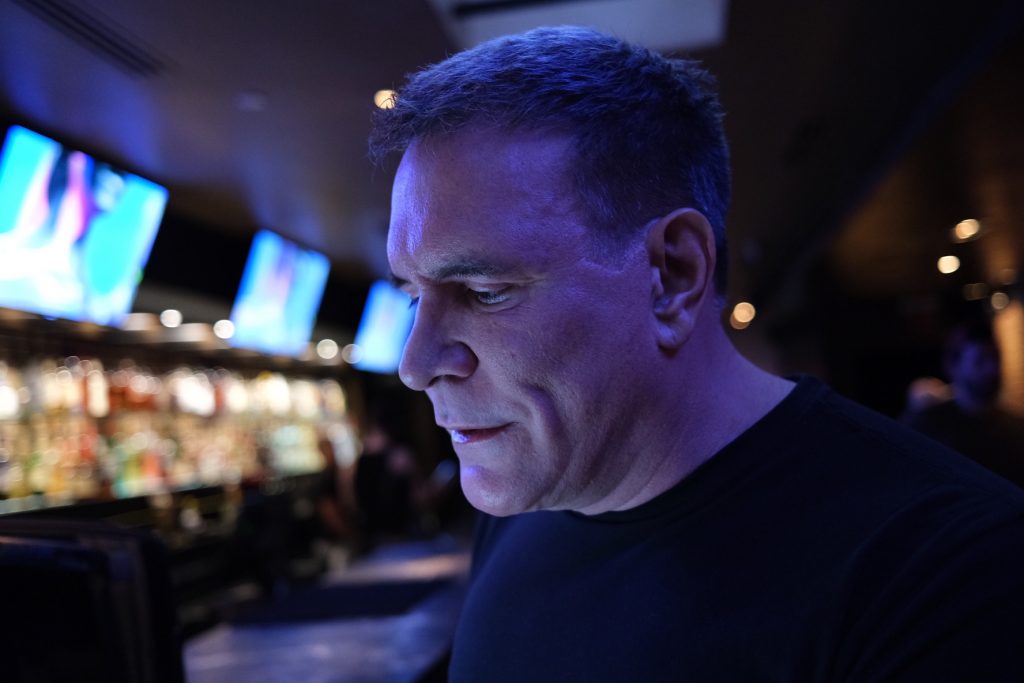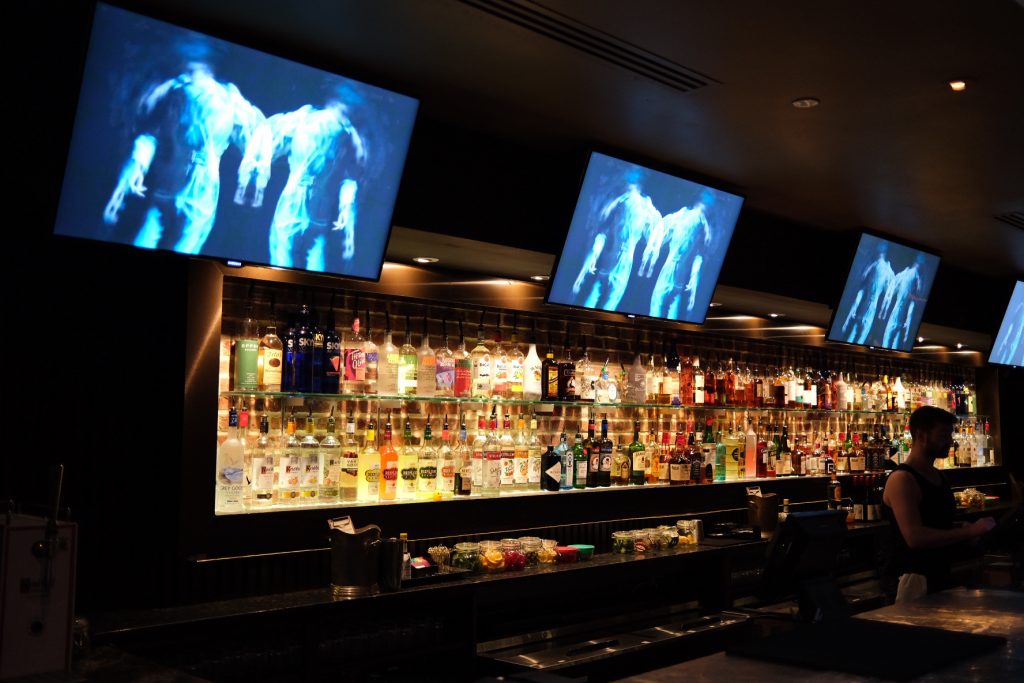Bar owners and lawyers are butting heads over a proposed revision to the District’s liquor law that would limit liability for serving drunk patrons.
Bar owners hope the pending bill would save them money by reducing insurance costs. However, lawyers argue it would remove the power of a customer to sue if they are over-served and hurt themselves.
Council members Brooke Pinto and Christina Henderson proposed the Dram Shop Clarification Amendment Act, or Bill 25-0056, in January 2023. The legislation would revise existing law to say that a dram, or bar, is only liable for a drunk patron’s injury if the bar’s staff knowingly serves an obviously intoxicated person. The “knowingly” and “obviously” parts would be new.
“I co-introduced this legislation to address the District’s exorbitantly high liquor liability costs that are not only the highest in the region, but second highest in the nation,” said Henderson in a prepared statement. “The current law is vague and does not provide a definition for ‘intoxicated’ or ‘intoxication.'”

Business owners say that the proposed law would save them money by making it harder for drunk patrons who injure themselves to sue. They say that if their liability goes down, so too would their liability insurance.
John Guggenmos co-owns P Street’s Number Nine bar in Logan Circle and supports the pending bill. He published an opinion piece about it in the Washington Business Journal last month, detailing its economic impact.
“It is defining intoxication, it is defining the standard of knowingly serving someone, what that means,” said Guggenmos of the proposed bill.
Jean Paul Sabatier, co-owner of Logan Circle’s Jane Jane bar on 14th Street NW, agreed.
“It is to everybody’s benefit to offer a bit of clarity to these small businesses in general to make sure we’re outlining what intoxication means for everybody,” said Sabatier.
For Guggenmos, it comes down to what’s fair.
“Even if I only served you one drink and you had six or seven at another bar, I would be liable,” said Guggenmos.
Alabama revises its liquor law.
Guggenmos pointed to Alabama’s April 2023 revision of its liquor liability law as an example of the positive change the District’s Dram Act could bring.
Alabama’s new law says a bar is only responsible for the injury or death of a person if they “knowingly” serve someone who is “visibly” drunk. According to Alabama Retail, an association that represents retailers in public policy, Alabama enacted the legislation to lower the cost of liability insurance for businesses.
The Alabama statute says that knowingly serving alcohol to an intoxicated person means that the bar “knew or should have known under the circumstances.”

Guggenmos said that the cost of liquor liability insurance directly correlates to an ISO rating that is given to states.
The Insurance Services Office, or ISO, assigns a number for how risky it is to insure establishments in a state.
Before the revision, Alabama had a score of 10, the highest possible. After it enacted the changes, ISO changed the state’s rating to a 5.
Guggenmos said the District’s rating is a 9. He also provided a background memo for the Dram Act legislation that showed premiums as high as $400,000 for nightclubs and restaurants.
Supporters hope a reduced score would lead to lower insurance premiums.
“The legislation would bring DC’s liability insurance costs in-line with much of the rest of the country by reducing those costs for neighborhood bars and restaurants who struggle to pay these premiums at a time of increasing inflation and overhead costs,” Henderson said in her prepared statement.
‘A solution looking for a problem.’
Lawyer Timothy Clinton of the law firm Clinton & Peed doesn’t see a correlation between the proposed changes and reduced costs.
He said the District’s proposed Dram Act is a solution looking for a problem.
“If this is an insurance problem, this should be regulated by the insurance,” said Clinton. “If the [ISO] score is high because we have such excessive intoxication in the District because they’re getting drunker than other states, this regulation will have the opposite effect than what’s desired.”
He said that the new law would give bars more power to over-serve. It would prohibit drunk patrons who hurt themselves from suing the place that provided the alcohol, according to Clinton.
He noted specifically a section of the proposed law that states that no lawsuit could be brought “by the person to whom the alcoholic beverage was sold or served.” Clinton said the proposed revision wouldn’t hold bars responsible when they should.
“The answer is not to give immunity to the people who are responsible for excessive intoxication,” said Clinton.
He said the new law would also harm alcoholics by shifting blame away from the bars that profit from their habitual drinking. Clinton said that bars should be accountable for making responsible decisions, especially on behalf of a person with an illness whose judgment is impaired.
Clinton said he is passionate about the issue because of a lawsuit he was involved with a few years ago. He noted he won a wrongful death case in 2019 where his client’s husband was over-served by a bar and died of complications after collapsing.
Clinton testified against the Dram Shop Clarification Act during a June 2023 hearing before the District Council’s Committee on Business and Economic Development. Trial lawyer Brendan Klaproth of Klaproth Law and government affairs director Frank Harris from Mothers Against Drunk Driving also objected to the proposed law during the hearing.
David Super, a professor with the Georgetown University Law Center who teaches contract and tort law, said he agreed with Clinton’s arguments against the Dram Act.

“This would make it very difficult to hold dram shop owners accountable for irresponsible behavior,” said Super.
The Council Office of Racial Equity also raised concerns about the Dram Act’s effect on communities of color.
In its racial equity impact assessment of the proposed law, CORE said that, while anyone can seek damages for an alcohol-related injury, residents of color face greater challenges in doing so.
“B25-0056 will likely harm justice and economic outcomes for Black, Indigenous, and other residents of color who are victims or related to victims of alcohol-impaired actions,” said CORE.
Next steps.
“The next step will be for the Committee on Business and Economic Development to hold a markup and vote on the bill prior to consideration by the full Council,” Nicholas Pcholkin, legislative assistant to Henderson, said in an email.
The council has until the end of the legislative session in December 2024 to act on the bill, according to Ché Ruddell-Tabisola of the Restaurant Association Metropolitan Washington. If it does not become law by then, it can always be reintroduced.
Ruddell-Tabisola said he hoped the bill would be enacted much sooner because the current law gives plaintiffs unlimited power and harms small businesses.
“If you’re a local neighborhood restaurant, this insurance is so expensive. It’s so far out of reach,” said Ruddell-Tabisola.
Dylan Halpern is a resident of Logan Circle and was unaware of how the current law works.
“I’ve lived in D.C. for seven years, and I did not know this,” said Halpern.
He said he didn’t see how adding language about knowingly serving a patron or visible intoxication to the current law helped.
“I’m just not sure how you could prove this,” said Halpern.















This will be ridiculous. Bar owners have a responsibility to look out for the safety of the community and not just greed of their pocket. Wow everybody is responsible for their own action so is the actions of the bar. As long as the establishment has the right to deny entry and or serve they hold the responsibility of safety.
They do. They have multiple agencies holding them accountable including several different trainings and licenses required to even serve in DC. MD and VA businesses pay nothing (which DC businesses rent even asking for) while DC businesses pay hundreds of thousands of dollars a year or go without bc they can’t afford it. Alabama added language in their liquor liability reform and immediately cut their ISO score in half. There’s the proof. How anyone can argue that adding defined terms won’t be effective…the proof is spelled out in black and white. Want to talk about equity? I can assure you the smallest businesses, many owned by people of color, are going uninsured bc the policy prices are completely out of reach. Only the big multinational chains, out of town restaurant groups and yet another STARR restaurant can afford hundreds of thousands of dollars in liquor liability. DC doesn’t have some huge alcoholism or drunk driving problem but regardless, why is adding ANY personal responsibility from grown adults viewed as outrageous?
[…] Ward 2 Councilmember Brooke Pinto and At-Large Councilmember Christina Henderson are backing a bill to limit the ability of patrons to sue bars for overserving them. Hospitality industry veterans say this would drive down D.C.’s sky-high insurance costs, but attorneys pressing such cases think the legislation is poorly crafted. [The Wash] […]
[…] Ward 2 Councilmember Brooke Pinto and At-Large Councilmember Christina Henderson are backing a bill to limit the ability of patrons to sue bars for overserving them. Hospitality industry veterans say this would drive down D.C.’s sky-high insurance costs, but attorneys pressing such cases think the legislation is poorly crafted. [The Wash] […]
Pointing to Alabama as a model to follow doesn’t seem like a good strategy ….